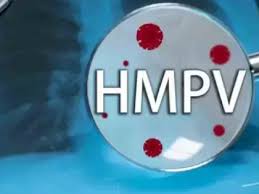HMPV in India: Centre Urges States To Increase Surveillance for Respiratory Diseases
By Lokmat English Desk | Updated: January 7, 2025 15:13 IST2025-01-07T15:12:42+5:302025-01-07T15:13:03+5:30
The Centre has urged states to step up surveillance for respiratory illnesses, including ILI and SARI, and to raise ...

HMPV in India: Centre Urges States To Increase Surveillance for Respiratory Diseases
The Centre has urged states to step up surveillance for respiratory illnesses, including ILI and SARI, and to raise awareness on preventing the spread of human metapneumovirus (HMPV), following the detection of cases in India.
On Monday, Union Health Secretary Punya Salila Srivastava led a virtual meeting with state and union territory officials to assess the situation regarding respiratory illnesses and HMPV cases, as well as to discuss public health measures for managing these conditions, according to a statement from the health ministry.
Also Read| What Is HMPV? Symptoms and How to Stay Safe During Human Metapneumovirus Outbreak.
The meeting was convened amid reports of a rise in HMPV cases in China and on the same day that five cases of HMPV were confirmed in Karnataka, Tamil Nadu, and Gujarat. HMPV is a globally recognized respiratory virus that causes infections in people of all age groups. During the discussion, it was said that data from the Integrated Disease Surveillance Programme (IDSP) shows no unusual increase in influenza-like illness (ILI) or severe acute respiratory illness (SARI) cases across the country, a finding supported by the Indian Council for Medical Research (ICMR) sentinel surveillance data, according to the health ministry statement.
The states were also advised to enhance information, education and communication (IEC) and awareness among people regarding the prevention of transmission of the virus with simple measures such as washing hands often with soap and water; not touching eyes, nose, or mouth with unwashed hands; avoiding close contact with people exhibiting symptoms of the disease; and covering mouth and nose when coughing and sneezing.
Open in app